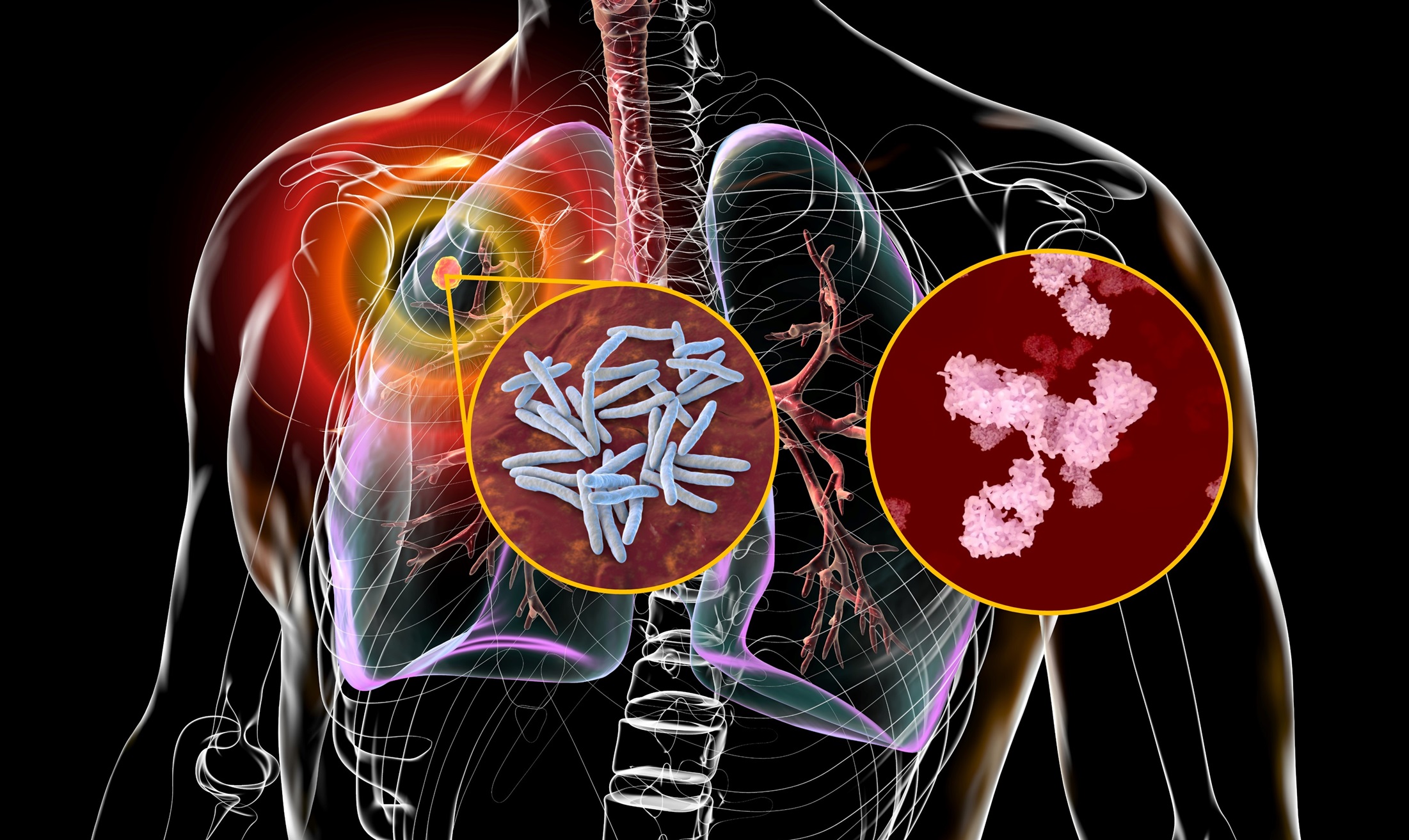Health and Medicine
Explore Health and Medicine

Dr. Rebecca Rose | Adjusting Ventilator Settings Could Improve Outcomes for Premature Infants
Premature birth puts infants at a greater risk of developing various medical conditions, including a chronic lung disease known as bronchopulmonary dysplasia – or BPD for short. Dr. Rebecca Rose, a neonatologist at Indiana University, recently explored how modulating ventilator settings used for very premature newborns can significantly improve their outcomes.

Prof. Alastair Florence | Optimising Pharmaceutical Production Using Digital Models
The development of safe and effective medicines that meet strict regulatory requirements has traditionally involved extensive experimentation, which can be laborious and costly. Incorporating digital processes, which can be used to produce individual pharmaceutical components, may provide a solution to manufacturing challenges by reducing development time, resource requirements, and costs. The Future Continuous Manufacturing and Advanced Crystallisation Hub, a flagship project at CMAC, at the University of Strathclyde, along with collaborators throughout the UK, has investigated the feasibility of using digital models to reduce costs, time and waste for high quality pharmaceutical production.

Prof. Christian Bréchot | ALF5755: A New Therapeutic Avenue for Alzheimer’s and Diabetic Neuropathy
Many diseases become more likely to emerge as we age, with metabolic disorders such as diabetes, and neurodegenerative conditions, such as Alzheimer’s disease, representing two frequent manifestations of poor health in old age. While many age-related diseases present very differently, many share common underlying mechanisms. These include inflammation, a build-up of reactive oxygen molecules that can damage cellular components, and a lack of sensitivity to insulin. Treatments that can effectively target these mechanisms could have transformational effects on the age-related diseases that are fueled by them, including potentially preventing such diseases from developing in the first place. Prof. Christian Bréchot and colleagues at The Healthy Aging Company have developed a drug candidate: ALF5755, the pharmacological name of a protein called Hepatocarcinoma-Intestine-Pancreas, or HIP for short, also named Reg3A, that has shown exciting evidence of effectiveness on the cognitive disorders which occur during Alzheimer’s disease and the peripheral nerve damage that often occurs in diabetes, which is called diabetic neuropathy.

Dr Christopher Buck | Mint: A Fresh Perspective in the Fight Against Covid
Dr. Christopher Buck, a virologist at the US National Cancer Institute in Bethesda, Maryland, has been working to spread the word about a growing body of scientific literature suggesting that mint and related herbs can help fight Covid infections. In his recent review article, “The Mint Versus Covid Hypothesis,” he makes a case for the idea that decentralized clinical trials could be used to more thoroughly explore this exciting idea.

Dr Katty Kang | Deciphering the Molecular Origins of Brain Disorders
During brain development, anomalies may arise which lead to serious conditions such as epilepsy, triggering seizures and requiring lifelong monitoring and medication. However, the underlying causes and the way in which these defects occur are not completely understood. Dr Katty (Jing-Qiong) Kang and colleagues at Vanderbilt University Medical Centre in the USA have conducted extensive research into the molecular mechanisms associated with developmental brain disorders, with a focus on genetic epilepsy. They propose novel therapeutic targets to effectively manage symptoms and improve clinical outcomes by targeting the root cause.

Dr Matthew Sherrer | The Icarus Paradox in Anesthesiology: Building on Success and Avoiding Stagnation
As a medical specialty, anesthesiology has made remarkable progress to deliver patient safety at an incredibly high level, while administering drugs that could potentially be very dangerous at a slightly increased dose. However, just like the case of Icarus, a character in Greek mythology who flew too close to the sun before plummeting back to Earth, success can carry the seeds of failure. The impressive progress towards patient safety could conceivably lead to the extinction of anesthesiology as a specialty. In the context of cutting costs and an environment where the return-on-investment for anesthesiologists is not always clear, there may be a temptation to replace anesthesiologists with other professionals, such as specialized sedation nurses, or with new technologies.

Dr. P. R. Raghavan | The Potential Effects of a Dietary Supplement on a Range of Health Issues
Dr. P. R. Raghavan, CEO and Chairman of Nanorx Inc., developed Metadichol, a nutritional supplement that has shown potential in treating a range of health issues. Dr. Raghavan suggests that the supplement may help to stave off illnesses such as diabetes and antibiotic-resistant infections.

Dr. Matthew Sherrer | An Infinite Game Mindset for Enhanced Cooperation in Anesthesia
Anesthesia in the US is currently delivered through a team-based approach, with physician anesthesiologists supervising certified registered nurse anesthetists. However, in over 20 states, there is no requirement for nurse anesthetists to be supervised by anesthesiologists, allowing them to work independently. This has resulted in a bitter turf war over the rights and responsibilities of physicians and advanced practice nurses working in this discipline to provide patient care, paving the way for daily acrimony and a toxic working environment. The mindset behind this adversarial approach can be compared with a “finite game”, where there are clear winners and losers. Aiming to challenge this dysfunctional tribalism, Dr. Matthew Sherrer from the University of Alabama Birmingham and colleagues have drawn on an alternative mindset: the infinite game.

Professor Lobelia Samavati | Paving the Way for Antibody-based Diagnostics for Tuberculosis and Sarcoidosis
Tuberculosis – or TB – is a global health threat, with 10 million new cases annually. Diagnosing TB can be a challenge, as there is a lack of rapid, point-of-care diagnostic tests. It can also be difficult to distinguish between TB and other inflammatory diseases, such as Sarcoidosis. One option may be to identify antibodies in patient samples that can reveal the presence of TB. However, current antibody tests for TB lack accuracy. Professor Lobelia Samavati and colleagues at the Wanye State University School of Medicine in Michigan are tackling this challenge to cast light on the immune signature of these diseases. Their aim is to develop new diagnostic techniques for TB and Sarcoidosis.

Dr Abayomi Sanusi | Can Faith Institutions Encourage People to Maintain Healthy Blood Pressure?
High blood pressure, also known as hypertension, is a common and potentially dangerous condition that increases the risk of many severe medical issues, including heart disease, heart attack, stroke, heart failure, and kidney disease. Dr Abayomi Sanusi, a researcher at the University of York, recently carried out a study exploring how faith-based institutions could encourage their community members to adopt healthy behaviours that can reduce hypertension.

Ria Nishikawara | Exploring How to Improve Healthcare for Patients with Fibromyalgia
Fibromyalgia is a relatively common and yet poorly understood condition characterised by chronic diffuse pain and stiffness, chronic fatigue, poor sleep and cognitive difficulties. Ria Nishikawara at the University of British Columbia and her collaborators Dr Izabela Schultz, Dr Lee Butterfield, and John Murray, carried out a study exploring the unique healthcare experiences of patients diagnosed with fibromyalgia. Their aim was to determine what patients found most helpful and how the available services could be improved.

Addressing antimalarial drug resistance in Africa to ensure patients can continue to be saved
We are pleased to be joined by Dorothy Achu, Regional Malaria Adviser, WHO African Region; Aimable Mbituyumuremyi, Director, National Malaria Control Program, Ministry of Health, Rwanda; Adam Aspinall, Senior Director, Access and Product Management, and George Jagoe, Executive Vice-President Medicines for Malaria Venture. To learn about antimalarial drug resistance in Africa to ensure patients can continue to be saved.
Increase The Impact Of Your Research!
Explore partnership opportunities
Unwind without the hassle. Enjoy fresh audiobooks, delivered free!
